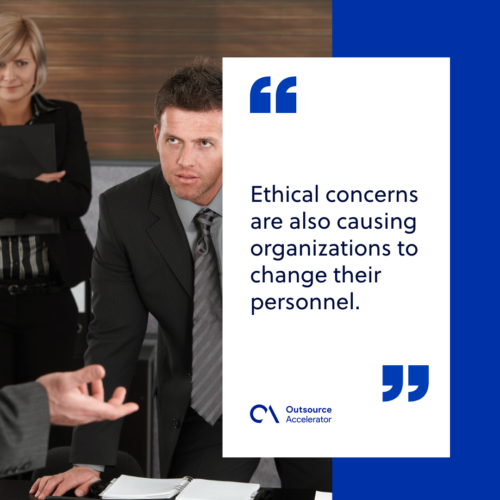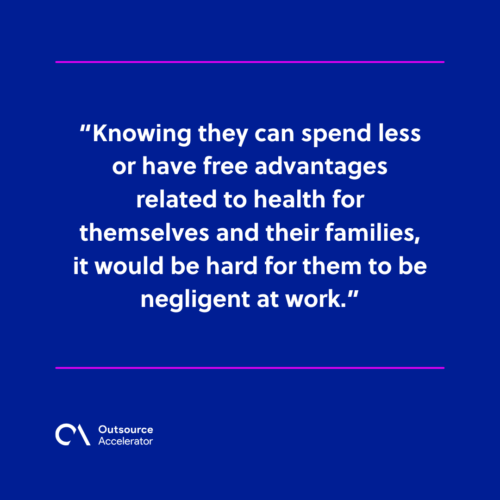Uncovering the actual cost of firing an employee

In most cases, companies see firing employees as a gain because they must have caused too many problems in one aspect of their operations. What they do not know is the act of terminating one can be expensive or a liability.
This article uncovers the actual cost of firing an employee.
Cost of firing an employee: Why employers terminate workers
There are many expectations from different responsibilities assigned to individuals. If they do not meet these, they may lose their jobs.
Some companies have created guidelines to warn workers before letting them go. From the first day of an employee, he or she will be informed of such grounds for termination.
Two common reasons are:
- Non-fulfillment of duties
- Poor performance
These two show a lack of commitment from employees because they do not care about achieving the company’s goals.
Ethical concerns are also causing organizations to change their personnel. No matter how strict they are with hiring, someone may damage company property, falsify company records, steal, and violate their policies.

Direct cost of firing an employee
It is an investment to consistently recruit and retain employees well enough to succeed in today’s economy.
When an employee has to leave your organization, here are the costs to pay him:
Final Paycheck
Because most businesses offer paid time off, they shall provide compensation for the unused hours of an employee to be terminated. The fired employee must receive this within 30 days of employment termination.
Severance pay
Dismissed employees usually receive this based on their salary range and how long they have worked for their employers. It means you mandated your organization to continue paying wages for a short period.
Continuation coverage
Under the Consolidated Omnibus Budget Reconciliation Act (COBRA), the private sector must extend coverage from 18 to 36 months.
Part of the premium is still your payment responsibility, while the terminated individual can pay some at a discounted price.
Factors affected by the increasing cost of firing an employee
Indirect costs also rise from this decision, not monetary alone. The actual cost of firing an employee also has something to do with the following:
Lost productivity
Losing one employee feels like losing a leg for your business, and it will be hard for you to walk.
Therefore, the team must cover additional responsibilities and exert more time and effort in doing their jobs. It can lead to laziness or loss of motivation–proceeding to slow down operations or processes.
Employee morale
You cannot say that work is work. Your employees can take it personally if you fire one of their friends. There can be changes in the culture and dedication of your team despite the valid reasons for letting others exit.
A study by Office Vibe states that 70% of employees believe gaining friends contributes to a happy work life. Also, 50% of them with a work best friend feel more connected to their organization.
Recruitment and training costs
You need to hire new employees to replace who you removed from your team. It would help if you spent on new advertisements and relevant tests before accepting applicants.
Filling the vacancy also demands onboarding and training costs to prevent failing to retain one again.
How to prevent the cost of firing an employee?
Firing someone is wise if your worker no longer serves his purpose. It will always come with the expenses and losses mentioned above.
To avoid further damaging and challenging the workforce, the following factors matter:
Offering quality health benefits
Excellent health benefits support employee retention. Knowing they can spend less or have free advantages related to health for themselves and their families, it would be hard for them to be negligent at work.
With every threat present to one’s health, it is also best to consider adding dental insurance and mental health benefits.

Employee satisfaction through additional perks
People Keep’s 2022 Employee Benefits Report revealed that workers value the following:
- Paid time off
- Retirement benefits
- Flexible work schedules
- Paid family leave
- Professional development
- Life insurance
Other than these, you can show how much you care for them outside work through stipends for health, wellness, remote work, transportation, and education expenses.
Hiring the right employees from the beginning
Standards matter when looking for the best candidate for your job openings. A fast hiring process only sometimes has a long-term advantage. When you demand a qualified applicant, you should list everything they must possess and understand.
Cost of firing an employee: What employers must learn
It is not just about the right employees, but also becoming the right employers from the start with complete training and support for their development towards their contribution.
The solution will not constantly be replacing your people for what they did or did not do. It is about creating a healthy work environment that matches deserved compensation and treatment with their roles.
Only fire an employee when you have the resources to face the consequences that come after it. While costs are high with this decision, a company can always come back stronger as long as they value employee satisfaction and their goals.







 Independent
Independent




